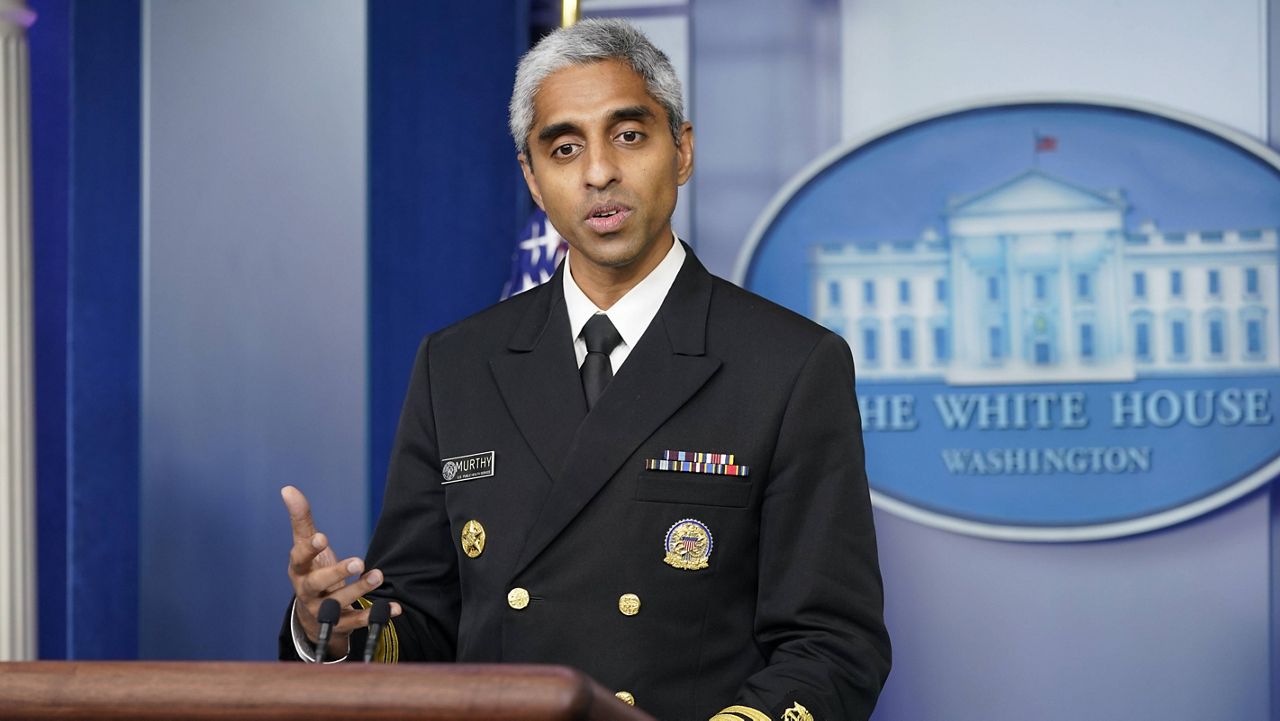With COVID-19 cases rising again and millions of Americans refusing to get vaccinated, Surgeon General Dr. Vivek Murthy issued an advisory Thursday warning about the dangers of health misinformation and recommending measures to blunt its impact.
What You Need To Know
- Surgeon General Dr. Vivek Murthy issued an advisory Thursday warning about the dangers of health misinformation and recommending measures to blunt its impact
- Murthy’s advisory — the first issued by his office during the Biden administration — says misinformation is playing a large role in preventing Americans from getting vaccinated
- The warning comes as the United States is facing another wave of increased coronavirus infections and as the rate of vaccinations continues to slow
- The surgeon general is calling on practically everyone to do their part to stop the spread of misinformation: individuals, families, communities, tech companies, schools, health professionals, journalists and others
Murthy’s 22-page advisory — the first issued by his office during the Biden administration — says misinformation is playing a large role in preventing Americans from getting vaccinated.
"Surgeon general advisories are reserved for urgent public health threats," Murthy said at Thursday’s White House press briefing. "And while those threats have often been related to what we eat, drink and smoke, today we live in a world where misinformation poses an imminent and insidious threat to our nation's health."
His warning comes as the United States is facing another wave of rising coronavirus infections. The number of new daily cases is up 110% since June 20 — to a seven-day average of 24,141 as of Tuesday. Meanwhile, just 48% of Americans are fully vaccinated, and the number of vaccine doses administered has slowed to about 413,000 a day, down from 3.4 million in April.
The surgeon general is calling on practically everyone to do their part to disrupt the spread of misinformation: individuals, families, communities, tech companies, schools, health professionals, journalists and others.
“I am urging all Americans to help slow the spread of health misinformation during the COVID-19 pandemic and beyond,” Murthy says in the advisory, adding: "Limiting the spread of health misinformation is a moral and civic imperative that will require a whole-of-society effort.”
Health misinformation is nothing new, but tech platforms, including social media, have made it easier to circulate falsehoods, Murthy said. During the pandemic, false and misleading information has been shared about COVID-19, masks, social distancing, treatments and vaccines.
A Kaiser Family Foundation poll in May found that 67% of unvaccinated U.S. adults believed at least one major myth related to the virus or weren’t sure whether it was true. An analysis of millions of social media posts by researchers at the Massachusetts Institute of Technology found that falsehoods were 70% more likely to be shared than the truth. And a study published in the journal Nature Human Behaviour found that even brief exposure to misinformation could dissuade someone from getting vaccinated.
“Modern technology companies have enabled the misinformation to poison our information environment with little accountability to their users,” Murthy told reporters. “They've allowed people who intentionally spread misinformation — what we call disinformation — to have extraordinary reach. They've designed product features such as 'like' buttons that reward us for sharing emotionally charged content, not accurate content. And their algorithms tend to give us more of what we click on, pulling us deeper and deeper into a well of misinformation."
Murthy said he finds it painful to know that nearly every death in the United States now is preventable.
“I say that as someone who has lost 10 family members to COVID-19 and who wishes each and every day that they had had the opportunity to get vaccinated,” he said.
The surgeon general’s recommendations include:
Equipping Americans with the tools to identify health misinformation;
Expanding research to better understand how false claims are disseminated, how they impact people and how to address them;
Implementing product design and policy changes on tech platforms to slow the spread of misinformation;
Investing in efforts to build resilience against misinformation, such as through media, science, digital, data and health literacy programs, and training for health care workers, journalists and others; and,
Convening leaders at all levels of government and private partners to explore the impact of health misinformation and identify best practices to prevent and address it
The Rockefeller Foundation announced Thursday that it is committing $13.5 million to combatting health misinformation and disinformation in the U.S., Africa, India and Latin America. And the Digital Public Library of America is assembling a team of librarians, scholars, journalists and civic leaders to confront misinformation, Murthy said.
